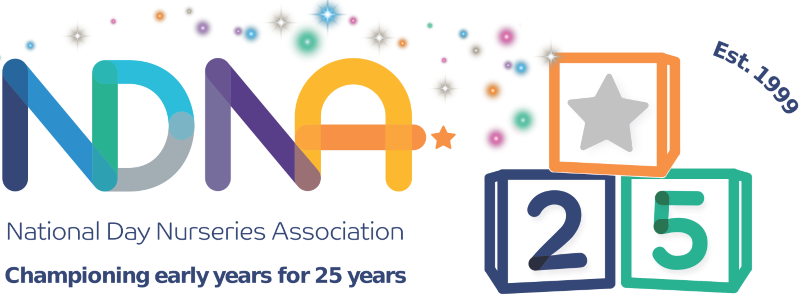Ofsted updated its Education Inspection Framework and Early Years Inspection Handbook in September 2019, find out the key changes for early years here.
Two documents in Ofsted’s Education Inspection Framework were updated. These were:
- Early Years Inspection Handbook (2019)
- Inspecting Safeguarding in Early Years and Skills Settings (2019).
Download both here
Early Years Inspection Handbook (2019)
The new judgement areas and grade descriptors have less focus on data and more focus on:
- Vocabulary
- Physical Development
- Quality of Education
- Leadership and Management
- Cultural capital.
You can book a place at one of our Preparing for your Ofsted Inspection courses to learn more about the changes.
Key changes to the Early Years Inspection Handbook (2019)
Key changes include:
- ‘Personal Development’ will now be separated from ‘Behaviour and Attitudes’
- ‘Quality of Education’ is a new judgement area.
Members can login to accessmore of the changes in our downloadable comparison tables, against the 2015 versions. Join NDNA here if you’re not already a member for access.

Quality of Education
Quality of Education replaces Quality teaching, assessment and learning and outcomes, less of a focus on data. Judgement will be based on your practice of:
- Intent
What do you want the children to learn - Implementation
How you will help them to progress in the seven areas of learning - Impact
How do you know that what you have done, has helped the child to learn? What has the child learnt?
Inspectors will grade all three of these as one by considering:
- A fully embedded ethos/vision
- A clear understanding of the educational approach
- Characteristics of Effective Learning and a well embedded approach to teaching and learning
- Cultural capital.
Cultural Capital
A new term included in the Early Years Inspection Handbook (2019) is ‘Cultural Capital’.
‘Cultural Capital’ is the essential knowledge that children need to prepare them for their future success. It is about giving children the best possible start to their early education.
What does ‘Cultural Capital’ mean?
- Broadening minds and outlook on life
- Experiencing awe and wonder
- Reducing disadvantage
- Understanding children’s backgrounds and experiences
- Developing knowledge and understanding of the community and wider world.
Personal Development
As ‘Personal Development’ will now be separated from ‘Behaviour and Attitudes’, how can you demonstrate that your nursery successfully promotes personal development?
- Providing a rich set of experiences that promote an understanding of people, families and communities beyond their own
- Teach the language of feelings to develop emotional literacy
- Supporting principles of equality, diversity & British values
- Practice supports emotional security
- Care practices promote resilience and independence
- Celebrating each unique child
- Supporting appropriate risk and challenge to develop physical and emotional health
- Supporting physical needs with clear, consistent messages to support healthy diet and healthy choices, physically active play, rest, exercise and screen time
- Helping children to gain effective understanding or risks including when using the internet, digital technology and social media and where to access support if they need it.

Behaviour and Attitudes
‘Behaviour and Attitudes’ will now be considered through the Characteristics of Effective Learning and how practitioners deal with and support any incidents of behaviour.
Inspectors will consider the ways in which children at your nursery demonstrate their attitudes and behaviour through the Characteristics of Effective Learning:
- Playing and exploring
- Active learning
- Creating and thinking critically
When reaching a judgement, inspectors must use their professional judgement to consider the ages, development and stages of the children.
Leadership and Management
Leaders and managers should have an accurate view of the quality of their provision and know what to improve.
They do not need a written self-evaluation but should be prepared to discuss the quality of education and care they provide and how well they meet the needs of the children.
Your priorities under ‘Leadership and Management’ are:
- Clear responsibilities and accountability
- Clear and ambitious vision
- Well-being versus workload
- Monitoring the quality of early education curriculum
- Monitoring and managing staff performance
- Leaders act with integrity to ensure that all children, particularly those with SEND, have full access to their entitlement to early education.

Safeguarding
Safeguarding is still inspected under Leadership and Management, and will focus on these three key areas:
- Identify
How do leaders and staff identify learners who may need early help or who are at risk of abuse? - Help
What timely action do staff take to ensure that learners get the right support when they need it, including preventative work, and how well do they work with other agencies? - Manage
How do responsible bodies and staff manage their statutory responsibilities and, in particular, how do they manage safe recruitment and respond to allegations about staff/other adults?
The updated Inspecting Safeguarding in Early Years and Skills Settings (2019) guidance will support you in meeting these three areas.
Members can login to see a full comparison for Inspecting Safeguarding in Early Years and Skills Settings (2019) and the Early Years Inspection Handbook (2019) against the 2015 versions.
If you aren’t already and NDNA member, join NDNA here for access to the comparison tables and a whole host of support for your nursery.

